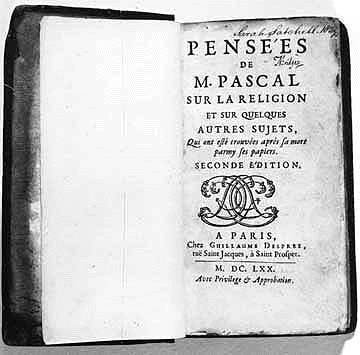Last updated on August 15, 2013
So what does one do to fix it?
Well, you don’t necessarily fix anything. Rather, you fix everything. It’s a matter of perspective and possibility. To change the framework of your whole life sounds like tough business, but it really starts with you.We think we are big when we are small; subsequently, we think ourselves importance when our real, true position exists in ultimate irrelevance to the might, power, and love of a Holy God. We believe our personal stories somehow contain kernels of relevance, when in fact we find ourselves quite low. We serve God, and understand our own ultimate irrelevance, but that’s not what we were taught.
A fallen nature isn’t something to blame, but something to recognize. The fallen nature makes us, by our own volition, a pack of rabid narccisists too focused on ourselves to think about others in any real capacity. Even when we think we care for others, we may project our problems onto them without confronting ourselves. It’s tricky business, to be sure. Even the author of this blog might be doing this, for all you know (but of course I’m not).
When we think about ourselves, we end up rationalizing behaviors that we already decided to do in advance. For example, imagine a bad behavior; it doesn’t matter what it is, or what you consider a bad behavior, as this works in a subjective way. You’ll note that, most times, you’ll continue on this behavior until you reach a breaking point with it – say, you destroy a cherished relationship, or find yourself on the run from the law. Then, you ask yourself, “why did I do that? That’s not me.” I’m sure you probably engaged in such a mental debate in the past. Stop constructing your life as an excuse to avoid truth; the construction might happen without your apprehension, but it’s certainly a product of your own life and what people taught you.
Unfortunately, asking the “why” of the situation means you begin the cycle again, immediately. Rather than wrangle with the issue and change yourself into what you should become, it’s much more fun, much more comfortable, and wholly easier to admit your crimes/misdemeanors/lack of social graces to someone who will support you. You, the reader, can imagine someone like this, whether they arrive from family, friends, or your Church community. They will say “Why did you do that? You’re not like that! You can do better.” Then you say thanks, promise to do better, and continue on your merry way…only to find yourself descending right back into the same behavior.
This is often how we treat our relationship with God: an admittance of guilt, a deed done wrong, but then a nice pat on the head. “Everything’s alright”, says the god in your head, not the One up above. We can THINK THINK THINK our way out of anything. I’ve done it, and so have you. But THINKING isn’t KNOWING, and that is the key. Unlike every other part of creation, though, we can recognize our failures, our procrastination, and our lives and confront it. We know ourselves, not in the intellectual sense but in closeness to our own souls. As Blaise Pascal says in the Pensees:
Man’s greatness comes from knowing he is wretched: a tree does not know it is wretched. Thus it is wretched to know one is wretched, but there is a greatness in knowing one is wretched…All these examples of wretchedness prove his greatness. It is the wretchedness of a great lord, the wretchedness of a dispossessed king…Man is only a reed, the weakest in nature, but he is a thinking reed. There is no need for the whole universe to take up arms to crush him: a vapour, a drop of water is enough to kill him. But even if the universe were to crush him, man would still be nobler than his slayer, because he knows that he is dying and the advantage the universe has over him. The universe knows none of this. Thus all our dignity consists in thought…Thus we can know God properly only by knowing our own iniquities. Those who have known God without knowing their own wretchedness have not glorified him but themselves…Knowing God without knowing our own wretchedness makes for pride. Knowing our own wretchedness without knowing God makes for despair. Knowing Jesus Christ strikes the balance because he shows us both God and our own wretchedness.
The problem in our society is that we do not know we are wretched. A social cause can feel correct, but appear done for all the right reasons. To act as if you, as a person, could truly and always do right deceives your mind constantly. As the philosophical pragmatists say, we don’t often notice something until it conflicts with our notion of habit; you don’t see the banana peel on the ground until you slip on it, regardless of how long it’s been there. But the key is to focus on this present, not on the future or past as an excuse to forget your problems. Confront them.
It’s a combination of personal pathology with a culture that excuses away behaviors as long as one is “sorry” that perverts the Christian paradigm to its core. Does God forgive? Certainly! God is Love, after all, by definition with any cursory overview of Scripture. Does God also judge, and is this judgment also Love? Absolutely! The Law remains; we die in Christ to free ourselves of its bondage, hence the crucifixion and the Resurrection. These two seemingly paradoxical forces find their ultimate character in God: a being who chastises and punishes because He Loves. It is a confusing mix, to say the least. We still remain under the Law if we live in the flesh; read Romans 7:
Or do you not know, brethren (for I am speaking to those who know the law), that the law has jurisdiction over a person as long as he lives? 2 For the married woman is bound by law to her husband while he is living; but if her husband dies, she is released from the law concerning the husband. 3 So then, if while her husband is living she is joined to another man, she shall be called an adulteress; but if her husband dies, she is free from the law, so that she is not an adulteress though she is joined to another man.
4 Therefore, my brethren, you also were made to die to the Law through the body of Christ, so that you might be joined to another, to Him who was raised from the dead, in order that we might bear fruit for God. 5 For while we were in the flesh, the sinful passions, which were aroused by the Law, were at work in the members of our body to bear fruit for death. 6 But now we have been released from the Law, having died to that by which we were bound, so that we serve in newness of the Spirit and not in oldness of the letter.
Thanks to Paul, we understand that Christians should direct their powers to good and righteousness because they were freed from sin (Romans 6). Unfortunately, we sometimes take grace so far in our theological construct that we blind ourselves to the prospect of change. Unsurprisingly, Paul addresses this immediately after the verses above:
7 What shall we say then? Is the Law sin? May it never be! On the contrary, I would not have come to know sin except through the Law; for I would not have known about coveting if the Law had not said, “You shall not covet.” 8 But sin, taking opportunity through the commandment, produced in me coveting of every kind; for apart from the Law sin is dead. 9 I was once alive apart from the Law; but when the commandment came, sin became alive and I died;10 and this commandment, which was to result in life, proved to result in death for me; 11 for sin, taking an opportunity through the commandment, deceived me and through it killed me. 12 So then, the Law is holy, and the commandment is holy and righteous and good.
13 Therefore did that which is good become a cause of death for me? May it never be! Rather it was sin, in order that it might be shown to be sin by effecting my death through that which is good, so that through the commandment sin would become utterly sinful.
I guess you could say that God covers both sides. He establishes law and establishes grace, and the two work together in a grand metaphysical construct of salvation. Both are holy, righteous, and good. But note the important point here: the Law isn’t sin; Jesus did not eliminate the Law. The Law makes it plain and simple what sin is; the categorization isn’t nebulous or suspect. Rather, the Law makes us understand sin, but also functions as a vehicle for the production of sin. If something isn’t against the law, then is it bad? No; but once it’s been identified, set apart, and demarcated from the rest of human action. It identifies sin as sin, for commandments come from God and it’s only through God that we could possibly identify it. Then it becomes something we do and dread as rebellious opposition toward God. Then we can see ourselves. Paul should know, he saw himself in the mirror:
14 For we know that the Law is spiritual, but I am of flesh, sold into bondage to sin. 15 For what I am doing, I do not understand; for I am not practicing what I would like to do, but I am doing the very thing I hate. 16 But if I do the very thing I do not want to do, I agree with the Law, confessing that the Law is good. 17 So now, no longer am I the one doing it, but sin which dwells in me. 18 For I know that nothing good dwells in me, that is, in my flesh; for the willing is present in me, but the doing of the good is not. 19 For the good that I want, I do not do, but I practice the very evil that I do not want. 20 But if I am doing the very thing I do not want, I am no longer the one doing it, but sin which dwells in me.
21 I find then the principle that evil is present in me, the one who wants to do good. 22 For I joyfully concur with the law of God in the inner man, 23 but I see a different law in the members of my body, waging war against the law of my mind and making me a prisoner of the law of sin which is in my members. 24 Wretched man that I am! Who will set me free from the body of this death? 25 Thanks be to God through Jesus Christ our Lord! So then, on the one hand I myself with my mind am serving the law of God, but on the other, with my flesh the law of sin.
So must we also recognize that we will war with the flesh until the day we die, but it is entirely the right course of action. And action remains the key word here: not thinking, but knowing one’s self to the inner core. We can then stop intellectualizing, stop rationalizing, and start doing without negative emotions and our own personal Sha. Only then can you change, a total and complete confession, a trek towards santification.
Either we live in humbleness or die in pride; it is our choice.


